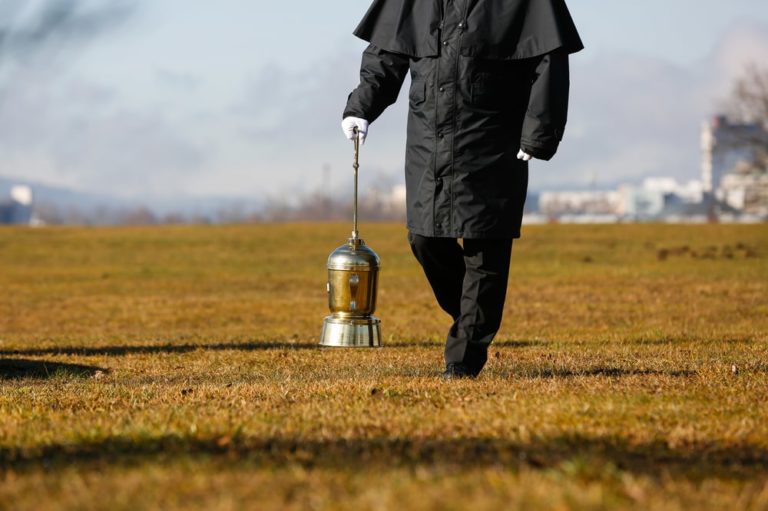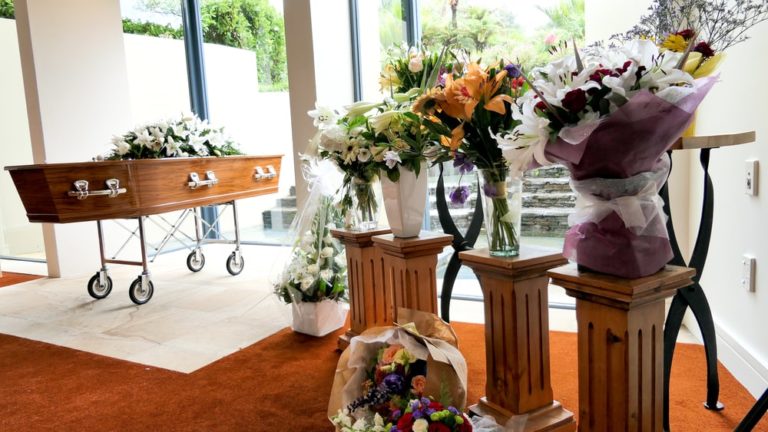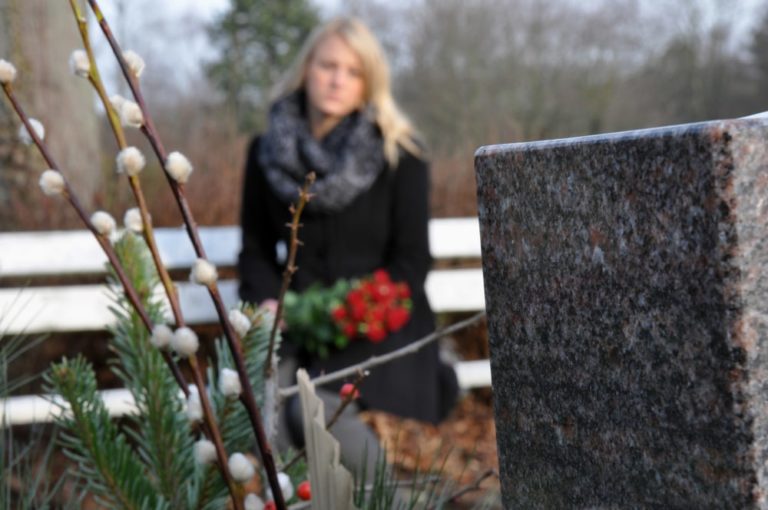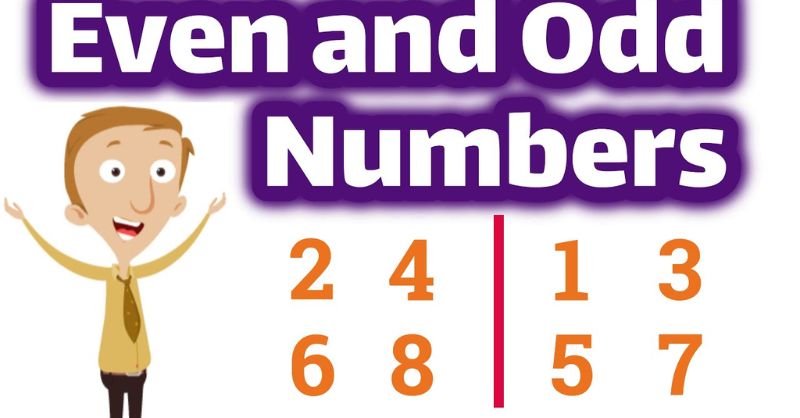Do you want to build a career that is unique, worthy, and peerless? If yes, the funeral director is on the mark choice for you! It may sound grim to you, but it is one of the highly appreciated and demanding occupations in the market!
Throughout the blog, I will try to explain the works and steps of how to become a funeral director.
Buckle up, and ready set go!
Table of Contents
Who is a Funeral Director?
A funeral director is a person involved in the funeral ritual business. He/she is also known as an undertaker. The tasks entail embalming and burial of the deaths and the arrangements for the funeral ceremony.
A funeral director may sometimes perform dressing, casketing, and cosseting. The term casketing means placing the corpse in the coffin. Cosseting is applying any sort of cosmetic or substance that enhances the appearance of the body.
What is the Role of a Funeral Director?
Now that we’ve defined the funeral director let’s go to the fathom of the tasks they need to perform. The duties include:

- Preparing death notices.
- Arranging pallbearers and clergy services.
- Collaborating with the family of the departed and preparing the logistics and details of the funeral as per their wishes.
- Selecting location, dates and time schedules of burials, wakes and memorial services.
- Scheduling the opening and enclosing of a grave with an agent of the cemetery.
- Coordinating the process with the crematory.
- Setting up and decorating the sites of all services.
- Supplying transportation for the deceased and grievers.
- Devising the shipment of corpses out of state or out of the country for final disposition.
- Tackling the managerial tasks. For instance, they often apply for the transfer of any pensions, insurance policies, or annuities on behalf of survivors.
- The funeral directors also embalm bodies. Embalming is a cosmetic and non-permanent preservative process. With it, they prepare the dead body for the final goodbye by the family and friends of the deceased.
- Notifying and resolving any customer issues or complaints.
- Keeping positive relationships with vendors, church officials, and cemetery directors.
- Designing and regulating the funeral home budget.
- Supervising payroll processing and circulating it to funeral home employees.
- You have to line up supplies for the funeral home as needed.
Blimey! Being a funeral director isn’t an easy-breezy job, I must say!
Things to Know Before Becoming a Funeral Director
The funeral is the most heartbreaking and unexpected occurrence in our lives. And you have come forward to become a funeral director, a gloomy yet rewarding job. So I want to enlighten you with some facts about this profession.
- Before anything else, you must know that it’s a physically tough job. Always you have to get up and go to set everything up. Sometimes you need to wake up in the witching hour and perform your duties. These hampers your sleep and alone can cause physical illness.
- It’s emotionally draining too. Daily you have to see dead bodies, the mourning of their near and dear ones. You have to deal with unnatural deaths. Sometimes you will bury the resting souls of little children, which will cause a mental breakdown.
- This field is not humourless either! Sometimes hilarious situations arise as people talk about the departed souls and their funny activities as well. Also, by hearing the stories, you will often get inspirations and insights about life.
- Are you comfortable enough to roam around mourning people? If not, this career option is not for you. Situations can become very upsetting and moving that you can’t help but crying! But I believe you are strong enough to handle such softness.
- You have to be well educated in mortuary science and business management. You will learn the history of funeral services, merchandising, and embalming chemistry. Also, you will get knowledge of management courses, pathology, and restorative art courses.
- Embalming is both art and science. You're in charge of how a person will look when people say their good-byes. You have to make them look as natural and peaceful as possible. Sometimes people die with wounds or tumours, and you need to remove those if a family requests. You can use wax to smooth the skin.

- And the working schedules! They will be more pathetic as there are no regular hours. You know death and birth aren’t bound to abide by the 9 to 5 rule!
- Every so often, people will take their frustration out on you. To many people, grief means getting mad at the whole shooting match. Your family will be out of their mind about how long something takes, and they’re crazy that it costs money to die. Some will become a lunatic fringe as their loved one has died.
- You have to be around dead people all the time. It will definitely change the way you feel about the departure from life. Some funeral directors note that the job normalises demise for them.
Phew! A bunch of mixed emotions going around, I must say!
How to Become a Funeral Director
Here comes the heart of this blog!
In this part, I will discuss your journey of becoming a funeral director, step by step.
The stages include:
1. Education
To become a funeral director, you have to educate yourself first. An associate’s degree in funeral service or mortuary science is the typical education requirement for funeral service workers.
The syllabus commonly includes professional ethics, anatomy, microbiology, chemistry, pathology, embalming, restorative art, federal regulations, and mortuary law. It also contains funeral service psychology and counselling. Moreover, if you want to build your own business after getting some experiences, some business courses may help you.
2. Apprenticeship
You can start your career also by taking an intermediate apprenticeship in funeral operations and services or as a funeral team member.
After one year of industrial experience, you can do a funeral director advanced apprenticeship.
Entry Requirements:
- For Intermediate Apprenticeship: some GCSEs with English and Maths or equivalent.
- For Advanced Apprenticeship: 5 GCSEs at grades 9 to 4 (A* to C) including Maths and English or equivalent.
3. Online Course
There are several online courses for you to become a funeral director.
They also assess your abilities. The exam is carried through online learning platforms. Immediately after completion, you will get the results of your test.
Moreover, you can attend your classes by sitting on your warm and cosy couch and get certification!

4. Certification
In the United Kingdom, to get the certification, you have to register as a student member of the British Institute of Funeral Director (BIFD). It is offered to those who are looking to obtain an understanding and formal training in the fundamental aspects of funeral service.
After finishing the course, the students must sit for a 90 minute written assessment with a 60% pass mark. The BIFD gives successful applicants with The Certificate in Funeral Service.
5. Diploma in Funeral Service
If you have obtained the BIFD certificate in funeral service successfully, you can take this course.
There are five modules. Each has different numbers of units, and on completion of each group, a tutor will assess you. The final exam consists of a written paper (2.5 hours), and an oral test on arranging a funeral with an examiner (1.5 hours). There is also an observation evaluation of conducting a funeral.
You have to get at least 60% on each element of the final assessment to achieve the diploma degree.
6. Training
The most convenient way to set feet into this profession is to begin by pursuing the funeral service awareness training program. It is offered by the National Association of Funeral Directors (NAFD) or the British Institute of Funeral Directors (BIFD) certificate in funeral service. The training program usually lasts one to three years.
Training areas of the programs are:
- Stages of Grief
- Grief Counselling
- Funeral Ceremonies
7. Skills
To recreate yourself as an expert funeral director, you must adopt several qualities and abilities within you.

You need these skills:
- First-class planning skills
- Emotional balance
- Good attention to details
- Interpersonal skills
- Ability to work with people from diverse cultures and communities
- Excellent communication skill
- Organisational skill
- Physical strength and fitness
- Good coordination
- Empathy
- Patience
- Great customer serviceability
- Problem-solving ability
- Time management skill
- Compassion
- Practical knowledge in business
- Ability to properly manage and oversee a budget
- To be able to carry out basic tasks on a computer or hand-held device
- Strong leadership skills
- To be familiar with proper etiquette and procedure for a range of religious or cultural funeral rituals
- To possess strong listening skills
- Knowledge of embalming and burial service
My goodness! Do you have all of these? Don’t worry, and I’m sure you will learn them eventually.
8. Work Experience
While you are studying, it’s wise to search for a part-time job in the relevant fields.
You could begin with a support role and gain experience as you learn on the job. You would usually need a customer service background and proficient IT and administration skills.
9. Search a job
Now you are all set to step on the floor!
Make a resume first, and seek a job. The employers of funeral directors commonly are:
- Funeral homes
- Funeral services companies
You can also search on the internet to find the Top Funeral Director Employers near you.

How many hours a week does a funeral director work?
The working schedule is a bit tiring, though!
As a funeral director, you may have to work around 39 hours per week. The weekly range may vary between 41 to 43 hours. But, you must be available on call 24 hours a day, 365 days per year. The work is maybe as rota system covering variable hours. A part-time job is also available.
You must remember one thing that you won’t ever find two similar days as a funeral director! Every day you will wear different hats.
Work environment
Whether the weather is sunny or snowy, your work environment will always be gloomy and shady. You will be there to make people’s final journey as beautiful as you can. You will ensure them a peaceful departure and sound goodbye to them.
You may work in a cemetery, at a funeral home, or a client’s house. But most of the time, your works will be outdoor.

Do funeral directors make good money?
Indeed the most awaited part for a job holder! Don’t you agree with me?
The salary domain may differ as per the work experience. In the United Kingdom:
- On average, as a funeral director, per year you will get £19,600.
- The starting remuneration may be around £14,000 to £16,000 in a year.
- Qualified and experienced funeral directors can typically earn around £25,000 a year. With additional bonuses and overtime duties, the salary can be up to £30,000 or more.
Career Advancements
You won’t confine your career to funeral director only. Will you?
With larger organisations, you will be promoted to branch, area or regional management with the advancement of time. Moreover, with much work experience and qualifications, you can become a teacher and teach NAFD qualifications.
After some experience, you can also move into self-employment and start your own funeral service company. See, lots of options are available out there!
Does the funeral director cry?
It’s a frequently asked question. People always wonder whether funeral directors have emotions or not! So, I thought this might come to your mind also.

Funeral directors deal with death every freaking day. But you know what? They are human too, and they have the same flesh and blood. They have emotions also. And yes, they cry! May be in front of everyone or in their ‘me time’. But their own emotional needs often get swept under the rug so they can better serve you. That’s the difference, nothing else.
Wrap Up
In this blog, I’ve tried to provide you with the necessary information and cut down the petty one. I hope you don’t need to search on the internet randomly and get confused.
I also thank you from deep inside of my heart for choosing this weary yet inviting career option.
Good luck and best wishes.
Sayonara!
Things to Know Before Becoming a Funeral Director
The funeral is the most heartbreaking and unexpected occurrence in our lives. And you have come forward to become a funeral director, a gloomy yet rewarding job. So I want to enlighten you with some facts about this profession.
- Before anything else, you must know that it’s a physically tough job. Always you have to get up and go to set everything up. Sometimes you need to wake up in the witching hour and perform your duties. These hampers your sleep and alone can cause physical illness.
- It’s emotionally draining too. Daily you have to see dead bodies, the mourning of their near and dear ones. You have to deal with unnatural deaths. Sometimes you will bury the resting souls of little children, which will cause a mental breakdown.
- This field is not humourless either! Sometimes hilarious situations arise as people talk about the departed souls and their funny activities as well. Also, by hearing the stories, you will often get inspirations and insights about life.
- Are you comfortable enough to roam around mourning people? If not, this career option is not for you. Situations can become very upsetting and moving that you can’t help but crying! But I believe you are strong enough to handle such softness.
- You have to be well educated in mortuary science and business management. You will learn the history of funeral services, merchandising, and embalming chemistry. Also, you will get knowledge of management courses, pathology, and restorative art courses.
- Embalming is both art and science. You're in charge of how a person will look when people say their good-byes. You have to make them look as natural and peaceful as possible. Sometimes people die with wounds or tumours, and you need to remove those if a family requests. You can use wax to smooth the skin.

- And the working schedules! They will be more pathetic as there are no regular hours. You know death and birth aren’t bound to abide by the 9 to 5 rule!
- Every so often, people will take their frustration out on you. To many people, grief means getting mad at the whole shooting match. Your family will be out of their mind about how long something takes, and they’re crazy that it costs money to die. Some will become a lunatic fringe as their loved one has died.
- You have to be around dead people all the time. It will definitely change the way you feel about the departure from life. Some funeral directors note that the job normalises demise for them.
Phew! A bunch of mixed emotions going around, I must say!
Read more
- When Should You Start Writing Your College Essay? A Strategic Timeline for Success
- 12 Easy Ways to Learn Even and Odd Numbers
- Top 5 Study Tools for College Students
- 11 Essential Tools Every Online Learner Needs in 2024
- How to Leverage the Global Talent Visa for Advancing Your Education
- From Study Notes to Assignments: 15 Ways PDF Editors Boost Academic Productivity
- How Blockchain is Transforming Education | 2024 Insights
- 5 Tips for Starting Your Cyber Security Analyst Career
- The Evolution of Online Assignment Help Services in the UK: Trends and Benefits
- Effective Time Management Strategies for Managing Online College Coursework








 August 17, 2023
August 17, 2023








